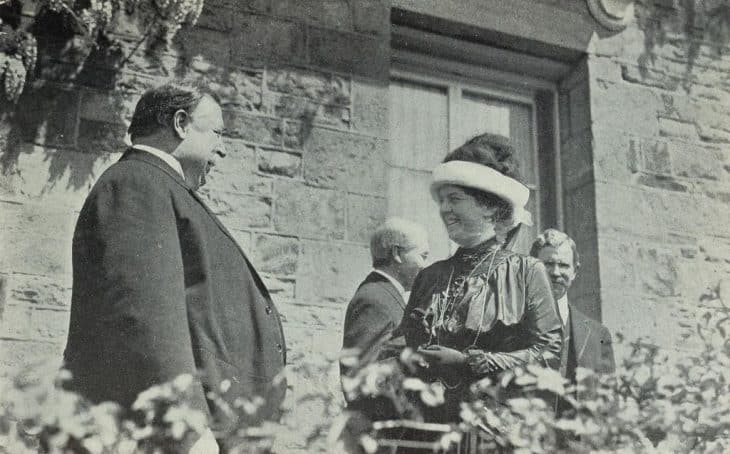
- Presidency: 22nd and 24th US President (1885-1889 and 1893-1897)
- Political Party: Liberal Democrat
- Accomplishments: The only US president to serve two non-consecutive terms
- History: Direct descendant of General Moses Cleveland, founder of Cleveland, Ohio
- Birthplace: Caldwell, New Jersey
- Born: March 17, 1837
- Died: June 24, 1908
- Wife: Frances Folsom
- Children: 5
- Nickname: Big Steve and Uncle Jumbo
- Born: Grover Cleveland Real Name was Stephen
- Size: Grover Cleveland was Obese
- Ancestry: Grover Cleveland was Related to the Founder of Cleveland
- Education: Grover Cleveland had to Quit School Many Times
- Opportunities: Grover Cleveland Turned Down the Chance to Go to College
- Career: Grover Cleveland’s Uncle Got Him Started in Politics
- Policies: Grover Cleveland Supported Amerindian Rights
- Personal Life: Grover Cleveland Became the First President to Marry in the White House
- Reputation: Grover Cleveland Fought Corruption as Mayor of New York City
- Contribution: Grover Cleveland Modernized the Country’s Infrastructure
- Grover Cleveland Killed 2 Men
- Grover Cleveland May Have Fathered an Illegitimate Child
- Grover Cleveland Paid to Avoid Conscription
- Grover Cleveland Actually Won His First Presidential Reelection
- Grover Cleveland Lived a Spartan Life Despite Being a Successful Lawyer
Grover Cleveland Real Name was Stephen
The first of our Grover Cleveland facts is that his birth name was not actually Grover. He was originally named Stephen Grover in honor of the first pastor of the First Presbyterian Church of Caldwell, where his own father also served as pastor. Grover Cleveland facts reveal that the future President was quite big, even as a child, and was often teased about this. He therefore dropped the name “Stephen” in his early 20s because he got tired of his childhood nickname, “Big Steve.”
Grover Cleveland was Obese
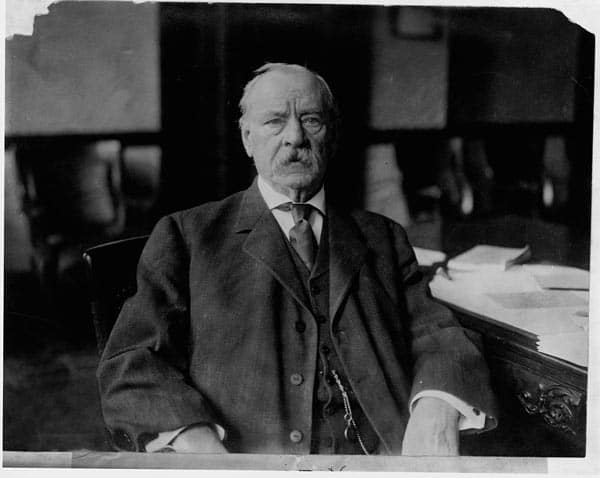
Weighing 250 pounds, Cleveland was the first US President who was very overweight, though he is not the only overweight President in history, nor was he the biggest. The most overweight, so far, was President William Howard Taft (1909-1913). Cleveland did not gain that weight during his presidency, however. He was always overweight, which was why friends and family called him Big Steve. Fitness Magazine even called him the least-healthiest President, because of his habits of smoking cigars and drinking far too much beer.
Grover Cleveland was Related to the Founder of Cleveland
Another of our Grover Cleveland facts reveals that he was a direct descendant of General Moses Cleveland, the man who founded the city of Cleveland, Ohio. Moses was also a lawyer, politician, and surveyor. He surveyed the site on which the city would be built, planned what became its downtown area, and gave it his surname on 22 July 1796. Rather than expel the area’s natives by force as was then customary, however, Moses peacefully negotiated with them for the land.
Grover Cleveland had to Quit School Many Times
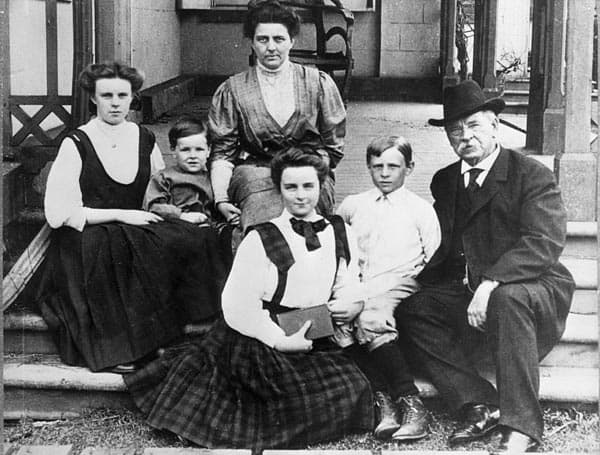
Grover’s father, Richard Falley Cleveland, was a pastor and missionary who never made enough money to support his family of nine children. Grover was the fifth born, and, like his other siblings, had to quit school several times in order to help bring in money. One of his jobs involved a two-year stint as a merchant’s apprentice in Fayetteville, which forced him to leave the family. He would later claim that he learned more from that apprenticeship than he did at school.
Grover Cleveland Turned Down the Chance to Go to College
Cleveland’s father died in 1853, so he had to quit school yet again in order to help support his family. He had worked as an assistant teacher for a while, when his pastor offered to pay for his college education on the condition that he become a pastor. Considering how unprofitable such a job was, and what hardship his family had faced, Cleveland understandably refused. He moved to New York, instead, and got a job as a clerk with his uncle’s business.
Grover Cleveland’s Uncle Got Him Started in Politics
Cleveland’s uncle was Lewis W. Allen, an important man who introduced him to politicians and prominent lawyers. This would signal the start of his career, for Cleveland would go on to work for the Rogers, Bowen and Rogers law firm. That job sparked his interest in law and he passed the bar in 1859. This marked his entry into the world of law and politics. In 1862, he started his own law firm and became Erie County’s district attorney the following year.
Grover Cleveland Supported Amerindian Rights
It isn’t true that Cleveland was responsible for the seizure of Amerindian lands, as those were already held in trust by the federal government. It was his predecessor, President Chester A. Arthur, who ordered those lands to be handed over to white settlers before he stepped down. Cleveland rescinded the order on 17 April 1885 and sent in troops to enforce his writ, but it did no good. Many Amerindians who held titles ended up selling their land for cash.
Grover Cleveland Became the First President to Marry in the White House
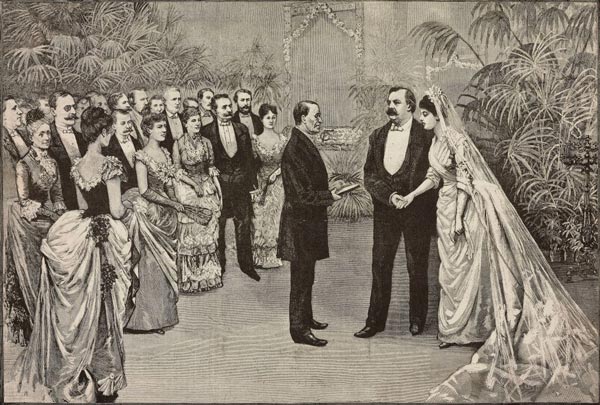
Cleveland became the second president to assume his position while still single, but the first to marry in the White House. His sister, Rose, had to therefore take up the duties of First Lady initially. In 1885, however, Cleveland met Frances Folsom, a student at Wells College. She was among the first women to study at college, since higher education was not traditionally open to women. On 2 June 1886, they got married at the White House in the Blue Room, which still exists today.
Grover Cleveland Fought Corruption as Mayor of New York City
Corruption was endemic to New York City and its surrounding state. Back then, it was a common practice to award state services, like street-cleaning, to the highest bidder instead of to the lowest. While bad for the city’s tax payers, it was good for the company which won the bid, and for the politician who granted it. When Cleveland became the city’s mayor in 1882, he fought such practices by publically shaming those leaders responsible, paving the way for his presidency.
Grover Cleveland Modernized the Country’s Infrastructure
Up until Cleveland’s presidency, America lacked regulation and government oversight. As a result, public infrastructure was not standardized. The country also suffered because the navy, roads, and railways were private interests and therefore subject to corrupt deals. Cleveland set up the Interstate Commerce Commission in 1887 to regulate the roads and railways. He did the same with the navy, which had previously been producing substandard ships because of business interests. Thanks to him, America finally modernized its naval ships and public infrastructure.
Grover Cleveland Killed 2 Men
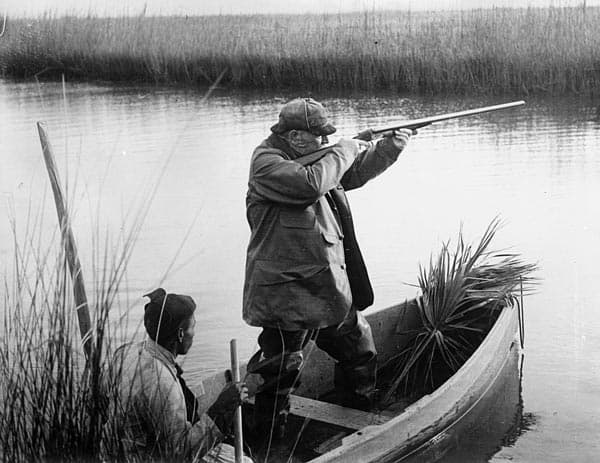
Perhaps the most gruesome of our Grover Cleveland facts concern events that took place during his stint as Sheriff of Erie County from 1870 to 1873. In 1872, Patrick Morrissey was condemned to hang for murder. As sheriff, it was Cleveland’s duty to either execute the man himself or pay a deputy $10 to do it for him. Already renowned for his tight purse strings, Cleveland chose to personally hang the man himself. In 1873, he hanged John Gaffney, another convicted murderer.
Grover Cleveland May Have Fathered an Illegitimate Child
In 1884, Cleveland ran for the presidency, but nearly lost because of the Halpin Scandal. Maria Crofts Halpin accused him of being the father of her child and of corrupting her morals. The Republicans seized on this scandal, but, rather than deny it, Cleveland admitted that it was possible since he had had an affair with the woman. He even admitted paying her child support since 1874. The open and honest way in which he dealt with the scandal saved his campaign, allowing him to become President.
Grover Cleveland Paid to Avoid Conscription
Another of our well-known Grover Cleveland facts is that despite his nationalism, he dodged military conscription. He started his own law practice in 1862, but the following year, Congress passed the Conscription Act of 1863. This bill required that all able-bodied men serve in the military if called upon. The alternative was to hire a substitute. Cleveland chose the latter option by paying $150 to George Beninsky, a Polish immigrant in his early 30s, to take his place.
Grover Cleveland Actually Won His First Presidential Reelection
In 1888, Cleveland ran for a second term with the Democrat’s full approval, but was defeated by Republican Benjamin Harrison. Harrison’s victory, however, was based only on the electoral votes in the swing states of New York, New Jersey, and Indiana. As far as the nationwide popular vote was concerned, however, Cleveland was the actual winner. It was later discovered that the Republican victory in Indiana was the result of fraudulent voting practices, but Cleveland accepted the result with grace.
Grover Cleveland Lived a Spartan Life Despite Being a Successful Lawyer
As early as 1866, Cleveland had already become a renowned lawyer, famous for successfully defending some high-profile, but poor, clients for free. Financial success, however, finally came about in 1868 after he successfully defended the editor of the Commercial Advertiser magazine against a libel suit. Those victories earned him more clients and more wealth. Despite this, he continued to live a simple life in a boarding house because most of his money went toward supporting his widowed mother and younger sisters.
Grover Cleveland Facts – Facts about Grover Cleveland Summary
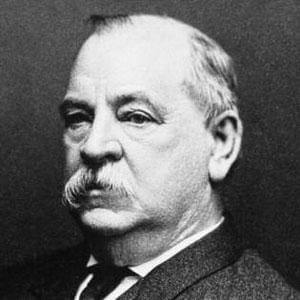 Grover Cleveland came from a humble background and was a self-made man, making him the ideal Democratic president. As Governor of New York State, he became a fierce opponent of corruption, which propelled him toward his first tenure as President. His support of liberal economic policies would prove to be his downfall, but wouldn’t stop him from serving a second, non-consecutive term. He was also responsible for modernizing the country’s navy and infrastructure by setting up government standards. Unlike his predecessors, he supported Amerindian rights out of the belief the native population could eventually be integrated into American society.
Grover Cleveland came from a humble background and was a self-made man, making him the ideal Democratic president. As Governor of New York State, he became a fierce opponent of corruption, which propelled him toward his first tenure as President. His support of liberal economic policies would prove to be his downfall, but wouldn’t stop him from serving a second, non-consecutive term. He was also responsible for modernizing the country’s navy and infrastructure by setting up government standards. Unlike his predecessors, he supported Amerindian rights out of the belief the native population could eventually be integrated into American society.
Was this page helpful?
Our commitment to delivering trustworthy and engaging content is at the heart of what we do. Each fact on our site is contributed by real users like you, bringing a wealth of diverse insights and information. To ensure the highest standards of accuracy and reliability, our dedicated editors meticulously review each submission. This process guarantees that the facts we share are not only fascinating but also credible. Trust in our commitment to quality and authenticity as you explore and learn with us.
